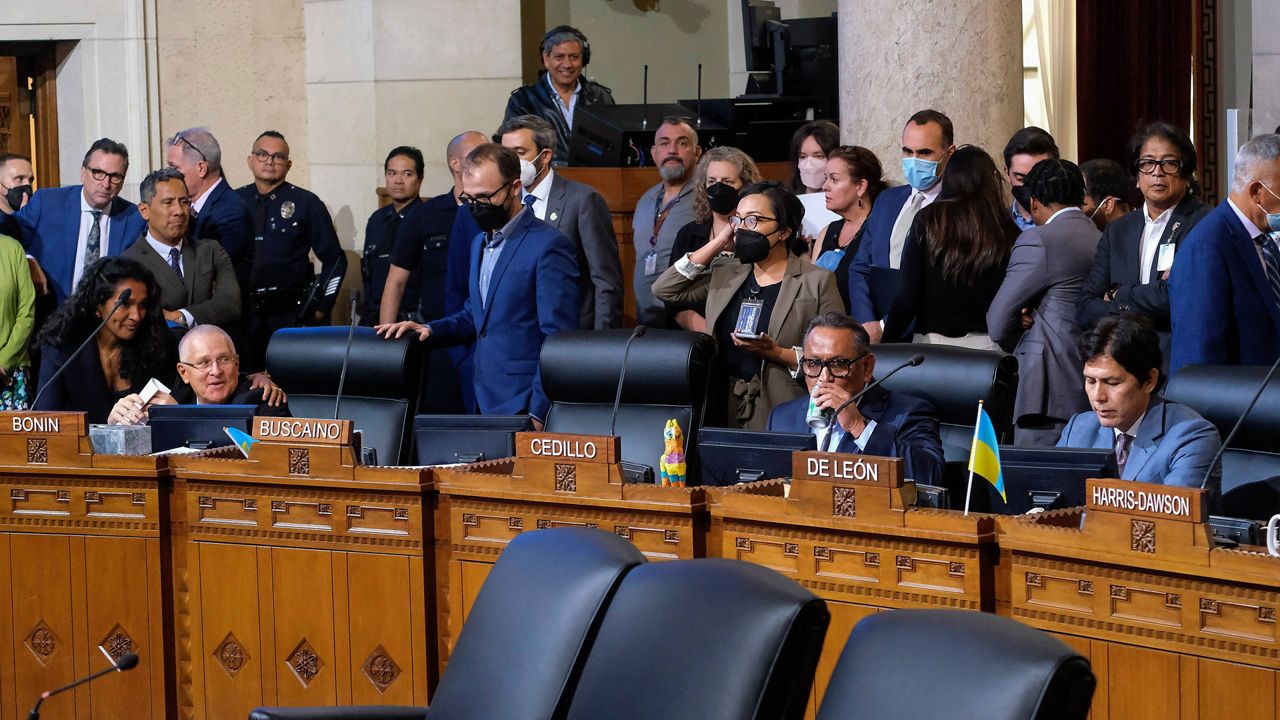LOS ANGELES (CNS) — Rep. Judy Chu, D-Monterey Park, and other leaders from the Asian American and Pacific Islander community warned candidates running for office Friday to refrain from using divisive rhetoric about AAPI communities, amid a racism scandal roiling Los Angeles City Hall and a spike in anti-Asian hate incidents since the onset of the COVID-19 pandemic.
"We are still reeling from the racist remarks made by LA city officials revealed over the weekend," Chu said at a news briefing outside the Chinese American Museum. "It's never been more critical for our leaders in this city to do everything they can to unite us, not tear us apart."
Seventeen Asian American civic and community leaders signed a letter on Friday asking those running for office to "not add fuel to an already politically charged environment and to recognize that what Los Angeles needs are leaders who can unite our city."
In a leaked recording from Oct. 2021 released on Sunday, three members of the City Council and a top county labor official were involved in a discussion that included racial slurs and strategizing of redrawing district boundaries to be more favorable toward themselves. Nury Martinez, the former council president, and Ron Herrera, who was president of the L.A. County Federation of Labor, have both already resigned following the release of the recording. But councilmen Kevin de León and Gil Cedillo have so far resisted growing calls for their resignation.
A report released this week by Stop AAPI Hate found that perpetrators of hate incidents against Asians often repeat the rhetoric they hear from political candidates and elected officials who single out China as responsible for the pandemic, economic issues or natural security concerns. After former President Donald Trump blamed China for the pandemic by referring to COVID-19 as the "China virus" or "kung-flu," more than 2,000 incidents used similar language, according to the group's research.
"We know what can happen when Asian Americans are used as political pawns because we've seen it," Chu said, recalling the 1982 racially motivated killing of Vincent Chin in Detroit.
Chu, speaking later to City News Service, said that hearing some of Los Angeles' most powerful leaders utter racist slurs in the leaked tape made her more concerned about an increase in anti-Asian rhetoric and incidents.
"These top elected officials were able to use such racist words so freely," Chu said. "What does this say about permission that regular people have to use ugly, racist terminology that really hurts and blames others, and to spread stereotypes that are not true?"
Chu was the first Chinese American elected to Congress and chairs the body's Asian Pacific American Caucus.
"It really hurts in terms of how we go forward in this election," Chu said to CNS of the fallout from the tape.
In the tape, the officials discussed how they could redistrict Koreatown, an ethnically diverse neighborhood that is half Latino and over a third Asian. Martinez described Oaxacan immigrants in Koreatown as "short dark people." She added "tan feos," Spanish for "They're ugly."
"I don't know where these people are from," Martinez said. "I don't know what village they came (from), how they got here."
John Kim, executive director of Catalyst California, said hearing the racial slurs on the tape felt like a "gut punch."
"LA should not be a place for division, but a place for innovation and fusion, a place striving for new ways of being and new ways of being together," Kim said. "And when these so-called leaders decide to use these notions of L.A. as their political punching bags, that not only in my mind broke the law, they broke the oath as public servants."
Kim said that Los Angeles has a "long and troubled history of pivoting communities against each other in order to score political points." The Chinese massacre of 1871 was an often-forgotten mass killing in which at least 18 Chinese men were murdered in a racially motivated attack in the old Chinatown neighborhood. In 1992, Korean-owned businesses were targeted during riots following the beating of Rodney King.
"Too often, it has been the AAPI community that's been that racial buffer, or that racial scapegoat to inflame and agitate the masses and to get more votes," Kim said.



